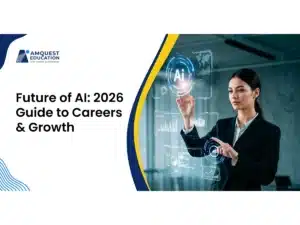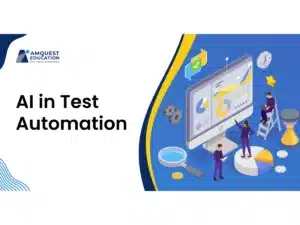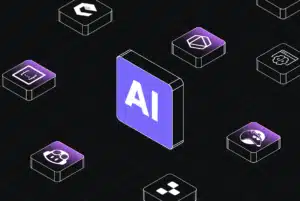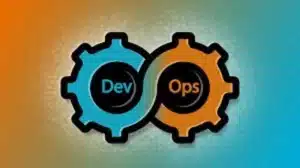Beyond Credentials: Mastering Generative and Agentic AI with the Leading Certification for Software Engineers and Technology Leaders
In today’s rapidly evolving AI landscape, a generative AI certification course is no longer just a credential but a strategic investment. For AI practitioners, software engineers, and technology leaders, the best generative AI certification course offers a holistic ecosystem that combines cutting-edge technical knowledge, rigorous software engineering best practices, real-world deployment experience, and leadership skills essential for mastering both generative and agentic AI systems.
Understanding Generative and Agentic AI: Synergy and Distinction
Generative AI leverages large language models (LLMs) and multimodal architectures to produce contextually relevant content, including text, images, and code. In contrast, agentic AI focuses on autonomous agents capable of goal-directed behavior, decision-making, and dynamic interaction with their environments. The integration of these domains creates AI systems that not only generate outputs but also orchestrate multi-step workflows autonomously and collaborate across agents to solve complex problems.
A top-tier generative AI certification course must equip professionals with foundational AI concepts and deep expertise in agent orchestration, environment interaction, and autonomous decision-making. This dual mastery is essential for designing systems that are intelligent, context-aware, and resilient.
The Changing AI Landscape and Certification Imperatives
Breakthroughs in transformer architectures, reinforcement learning, and neural network optimization have propelled generative and agentic AI into enterprise-grade applications. These technologies automate content creation, accelerate software engineering workflows, and enable autonomous DevOps operations. Modern certifications must cover:
- Foundational AI theory: Neural networks, attention mechanisms, and LLM architectures.
- Agent orchestration: Task decomposition, multi-agent collaboration, and adaptive planning.
- Scalable deployment: Cloud-native infrastructure, serverless inference, and API integration.
- Software engineering best practices: CI/CD, version control for prompts and models, testing, and security.
- Ethical governance: Bias mitigation, compliance, and responsible AI frameworks.
A comprehensive generative AI certification course ensures graduates can build production-grade AI systems with technical depth and operational rigor.
Cutting-Edge Frameworks, Tools, and Deployment Paradigms
Mastering generative AI requires fluency in an evolving ecosystem of frameworks and tools. Leading generative AI certification courses immerse learners in hands-on use of:
- LLM Orchestration Platforms: LangChain, Microsoft Semantic Kernel, and DigitalOcean Gradient enable developers to chain prompts, integrate knowledge bases, and manage multi-agent workflows. Hugging Face’s ecosystem, including Transformers and Accelerate libraries, is crucial for model implementation and fine-tuning.
- Agentic AI Frameworks: Frameworks such as OpenAI’s function calling, AutoGPT, and BabyAGI demonstrate multi-agent workflows with autonomous task routing and failure recovery.
- MLOps for Generative Models: Specialized pipelines for prompt engineering version control, model fine-tuning, and continuous monitoring address generative AI’s unique challenges. Tools like MLflow, Weights & Biases, and emerging generative AI-specific MLOps platforms are integral.
- Cloud-Native Infrastructure: Serverless inference, Kubernetes orchestration, API-driven integration, and scalable compute resources on AWS Bedrock, Azure OpenAI Service, and Google Cloud Vertex AI enable rapid, secure deployment.
An outstanding generative AI certification course integrates these technologies through realistic labs and projects that develop robust, scalable AI solutions.
Advanced Tactics for Scalable and Reliable AI Systems
Deploying generative AI at scale involves overcoming challenges related to latency, cost, reliability, and ethics. Leading certifications teach advanced tactics such as:
- Model Optimization: Techniques like quantization, pruning, and knowledge distillation reduce inference costs while maintaining output quality.
- Prompt Engineering at Scale: Modular, reusable prompt templates, dynamic context injection, and prompt chaining ensure consistent and adaptable AI outputs.
- Multi-Agent Coordination: Intelligent agent routing, task prioritization, asynchronous collaboration, and failure recovery mechanisms optimize autonomous workflows.
- Security and Compliance: Data privacy, consent management, authentication, authorization, and adherence to ethical and regulatory standards are enforced.
- Monitoring and Observability: Continuous monitoring pipelines detect model drift, bias, and anomalies to maintain system trustworthiness.
These competencies are cultivated through scenario-driven labs and mentorship in the best generative AI certification course.
Software Engineering Best Practices: The Backbone of AI Systems
Generative and agentic AI systems are complex software products requiring engineering discipline equal to any enterprise application. Certifications emphasize:
- Version Control and CI/CD: Managing prompt versions, model checkpoints, and automated deployment pipelines ensures reproducibility and rapid iteration.
- Testing and Validation: Automated unit tests for prompt outputs, integration tests for agent workflows, and user acceptance tests with domain experts validate system behavior.
- Security by Design: Authentication, authorization, encryption, and secure API gateways safeguard AI services.
- Documentation and Collaboration: Clear documentation of model behavior, API contracts, and operational procedures facilitates transparency and maintainability.
Graduates of a leading generative AI certification course emerge ready to deliver reliable, maintainable AI systems aligned with organizational standards.
Cross-Functional Collaboration: Driving AI Success
Successful generative AI projects require seamless collaboration among data scientists, software engineers, product managers, and business stakeholders. The best generative AI certification course fosters this mindset by:
- Teaching communication frameworks that translate complex AI concepts into business value.
- Introducing agile methodologies tailored for iterative AI workflows.
- Presenting case studies illustrating successful cross-disciplinary teamwork.
- Incorporating group projects simulating real-world stakeholder dynamics to enhance leadership and negotiation skills.
This cross-functional fluency prepares professionals to lead AI initiatives that balance innovation with risk management and business impact.
Ethics, Risk, and Governance in AI Deployment
Ethical AI deployment is critical. Certifications must address:
- Bias and Fairness Audits: Systematic evaluation and mitigation of biases affecting protected groups.
- Transparency and Explainability: Techniques for interpreting model outputs and communicating decisions.
- Data Privacy and Consent: Robust data handling compliant with GDPR, CCPA, and other regulations.
- Governance Frameworks: AI ethics committees, risk assessment processes, and continuous compliance monitoring.
- Hallucination and Misinformation Mitigation: Strategies to detect and control erroneous or harmful outputs.
Integrating these topics ensures AI systems are trustworthy and socially responsible, an essential component of any generative AI certification course.
Measuring Success: Analytics and Continuous Improvement
Effective generative AI deployments require rigorous measurement frameworks:
- Key Performance Indicators (KPIs): Metrics such as accuracy, user engagement, latency, cost efficiency, and business impact.
- User Feedback Loops: Human-in-the-loop mechanisms for continuous output refinement.
- Operational Metrics: Uptime, error rates, resource utilization, and anomaly detection.
- Dashboards and Reporting: Comprehensive monitoring tools providing actionable insights to engineers and leaders.
Top generative AI certification courses equip learners with methodologies and tools to build these analytics pipelines and embed continuous improvement in AI operations.
Case Study: Microsoft’s GPT-4 Integration in Office 365
Microsoft’s deployment of GPT-4 in Office 365 exemplifies the convergence of generative and agentic AI with robust engineering and collaboration:
- Secure, scalable API infrastructure serving billions of low-latency queries daily.
- Prompt engineering frameworks tailored for Word, Excel, and Outlook, enabling contextual assistance like email summarization and formula generation.
- Agentic AI principles enabling autonomous contextual tasks with dynamic user interaction.
- Cross-functional teams of AI researchers, engineers, UX designers, and compliance officers addressing technical and ethical challenges.
- Continuous monitoring pipelines measuring performance, user satisfaction, and ethical compliance.
This project underscores how a comprehensive generative AI certification course prepares professionals to lead transformative AI-powered products.
Why Our Generative and Agentic AI Certification Leads the Way
Unlike certifications focusing narrowly on foundational AI or isolated skills, our program offers an industry-grade curriculum designed for software engineers and technology leaders mastering generative and agentic AI systems. Key differentiators include:
- Comprehensive Curriculum: Covering LLM orchestration, autonomous agents, MLOps for generative models, security, ethical governance, and cross-functional collaboration.
- Hands-On Projects: Building, deploying, and monitoring AI applications using LangChain, Semantic Kernel, Hugging Face, DigitalOcean Gradient, AWS, and Azure.
- Expert Instruction: Led by senior AI practitioners and software architects with extensive deployment experience.
- Software Engineering Focus: Emphasizing CI/CD, testing, version control, and operational excellence for production readiness.
- Ethics and Governance: Integrated training on bias mitigation, compliance, and responsible AI.
- Community and Mentorship: Access to a vibrant peer network and expert guidance.
- Business Alignment: Training on aligning AI initiatives with organizational goals and governance.
Our generative AI certification course ensures graduates are prepared to lead AI transformations delivering tangible value.
Actionable Recommendations for AI Professionals
- Choose generative AI certification courses combining theoretical depth with practical labs on leading frameworks and deployment tools.
- Prioritize programs embedding software engineering best practices alongside AI concepts for scalable, maintainable solutions.
- Engage in cross-disciplinary projects to build communication and leadership skills essential for AI adoption.
- Develop expertise in monitoring, analytics, and ethical AI governance to maintain system trustworthiness.
- Commit to continuous learning to stay current with emerging frameworks, MLOps innovations, and ethical standards.
- Leverage mentorship and active communities to deepen understanding and accelerate problem-solving.
Lorem ipsum dolor sit amet, consectetur adipiscing elit. Ut elit tellus, luctus nec ullamcorper mattis, pulvinar dapibus leo.
FAQs
Q: What sets a valuable generative AI certification course apart?
A: It combines deep theoretical knowledge with practical skills in deployment, software engineering best practices, cross-team collaboration, monitoring, and ethical governance, enabling graduates to build scalable, trustworthy AI systems.
Q: How does this course compare with other best Agentic AI courses?
A: Our course integrates the latest agentic AI concepts, MLOps for generative models, advanced software engineering best practices, and ethical frameworks, delivered by industry experts with extensive real-world experience. It offers more comprehensive hands-on projects and mentorship than typical short or entry-level programs.
Q: Is prior software engineering experience required?
A: Yes, the course is designed for professionals with a software engineering background who want to specialize in generative and agentic AI system design and deployment.
Q: What practical tools and platforms are covered?
A: LangChain, Microsoft Semantic Kernel, Hugging Face Transformers, DigitalOcean Gradient, cloud-native deployment on AWS and Azure, and monitoring frameworks.
Q: Can this certification prepare me to lead AI projects?
A: Absolutely. The program emphasizes leadership, cross-functional collaboration, and aligning AI initiatives with business objectives to drive successful adoption.
Q: What is the course format and duration?
A: The course spans several weeks with live sessions, hands-on labs, team projects, and ongoing mentorship supported by an active community.
In an era where generative and agentic AI redefine software and business landscapes, investing in the best generative AI certification course is a comprehensive journey. It equips professionals with technical mastery, engineering discipline, ethical insight, and leadership skills to architect, deploy, and scale transformative AI systems responsibly and effectively.
“`






